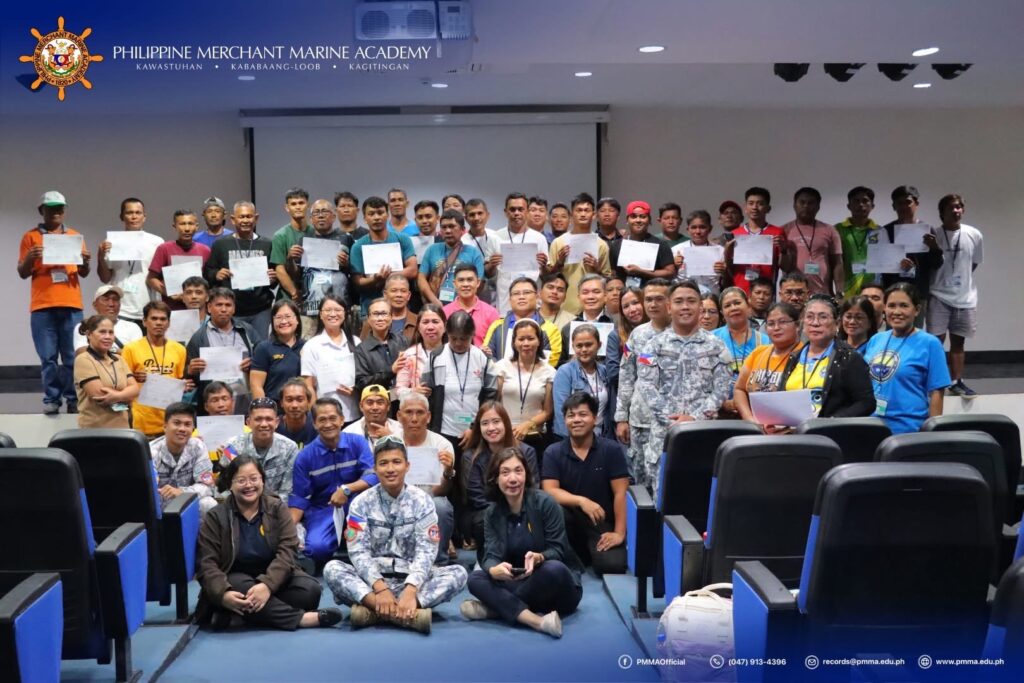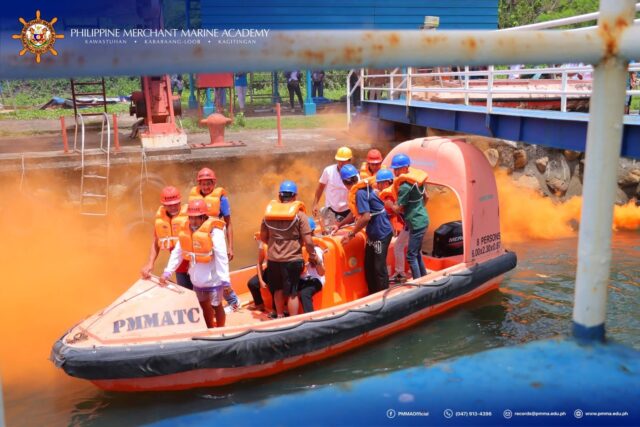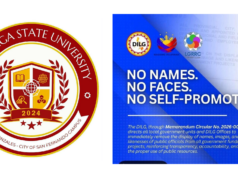IBA, Zambales (PIA) — A total of 111 small-scale fisherfolk from Zambales and Bataan completed a training on safety, survival, and security at sea to strengthen their preparedness and resilience while fishing.
The “Basic Safety, Survival, and Security at Sea” training was conducted at the Philippine Merchant Marine Academy (PMMA) in partnership with PATH Foundation Philippines Inc., and the Bureau of Fisheries and Aquatic Resources (BFAR).
The activity is part of the Fish Right Program, which promotes safe and sustainable fishing practices while supporting the protection of fisherfolk’s rights in the West Philippine Sea.
University of Rhode Island–Philippines Fish Right Program Commercial Fisher Liaison Artemio Mayote said PMMA was chosen because of its expertise in sea safety instruction.

“Training commercial fishers in safety, survival, and security is part of Fish Right’s efforts to empower West Philippine Sea fishers to protect their lives, their rights, their future, and the WPS in cooperation with other maritime stakeholders,” he explained.
Participants, who came from cooperatives and associations in Subic, Masinloc, Iba, and Mariveles, completed modules on maritime law, safety at sea, basic engine repair and maintenance, radio communication, and emergency response, including first aid and firefighting.
PMMA Superintendent Commodore Joel Abutal highlighted that the training combined both lectures and real-life simulations to prepare fisherfolk for situations they may encounter while at sea.
“Apart from the intensive lectures, our fishers were also trained through hands-on activities and real-life simulations of situations that they may actually encounter while at sea. In this way, we are not only strengthening their capacity to ensure safety at sea, but we are also helping them safeguard their livelihood by practicing safer and more sustainable fishing operations,” he said.
Abutal added that PMMA has long supported fisherfolk through similar programs in previous years. Beyond lectures, the Academy also provides technical support by monitoring fishing activities using AIS and is preparing to introduce drone training to locate vessels at sea.
He further explained that such efforts are especially vital for those venturing into the West Philippine Sea, where the risks are higher due to both natural hazards and geopolitical challenges and stressed that the training also fosters a sense of stewardship, empowering fishers to protect not only themselves but also the seas that sustain them.
For fisherfolk like Charlie Limuardo of Barangay San Agustin in Iba town, the training not only boosted his confidence but also equipped him to share his learning with others.
“Malaking bagay ‘yung natutunan namin sa kaligtasan at kung paano kami makakatulong sa iba. Ngayon at mas alam na namin, puwede namin ituro sa iba na wala rito sa training,” Limuardo said.
Although initially intended for 100 fisherfolk from Zambales, PMMA’s Department of Research, Development, and Extension expanded the program to include participants from Mariveles, Bataan.
Meanwhile, Provincial Fisheries Officer Neil Encinaries emphasized the importance of the initiative.
“Napakalaking tulong ng pagsasanay na ito upang maiangat ang kaalaman ng ating mangingisdang Zambaleño upang maging handa sa anumang trahedya at sakuna na pwedeng mangyari sa kalupaan man o karagatan. Ito ay hindi lamang para sa kanilang mga sarili kundi para din sa kasamahan nilang mangingisda. Mas ligtas ang may alam,” he said.
The initiative is expected to help fisherfolk become more confident and better equipped to ensure safety at sea, while also enabling them to share their knowledge within their communities, thereby building stronger and more resilient coastal livelihoods. (CLJD/RGP, PIA Region 3-Zambales)





